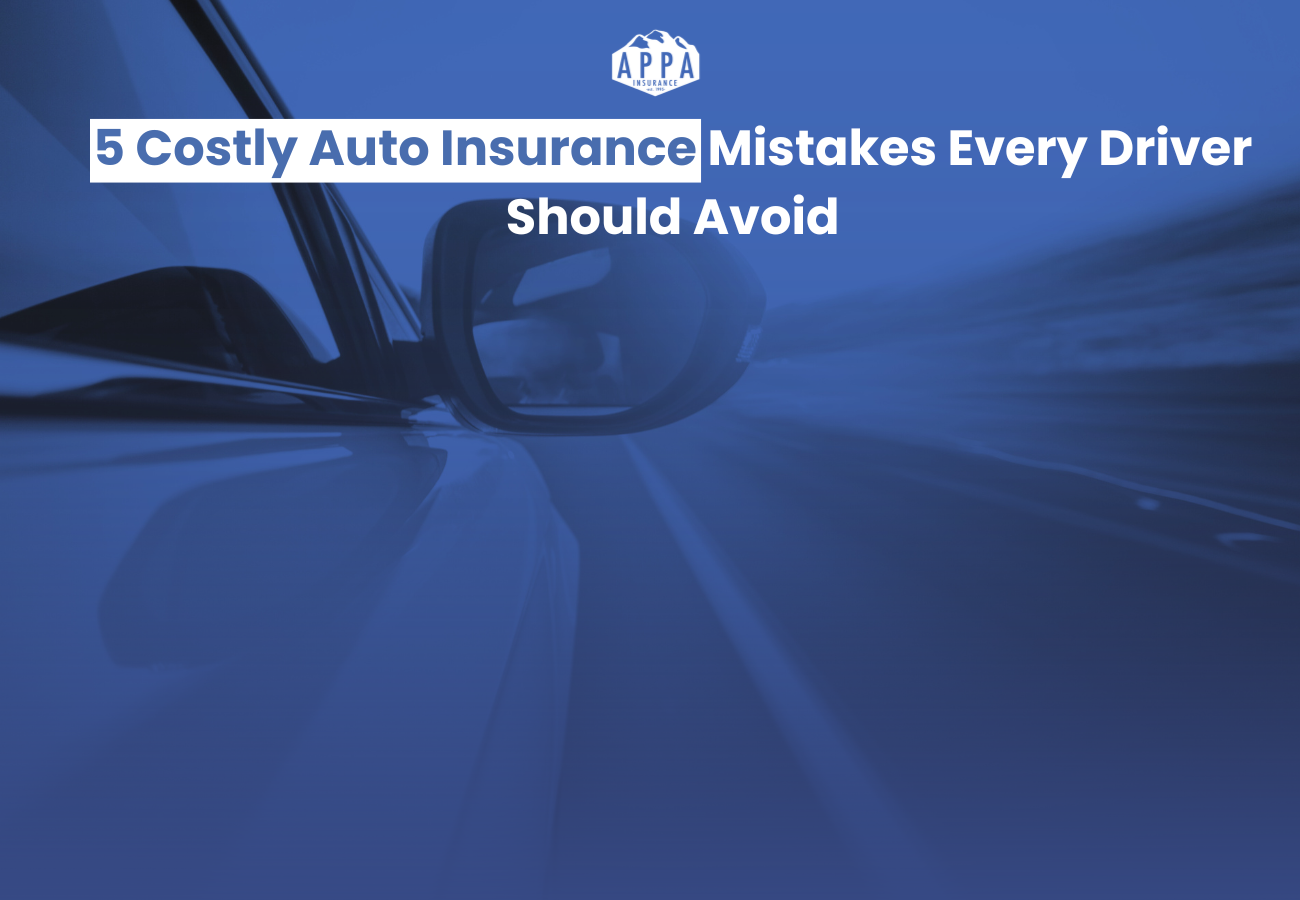
Many drivers unknowingly make mistakes that cause their auto insurance rates to rise and their coverage to weaken. From canceling policies to choosing inadequate limits, these errors can have lasting financial consequences. Understanding the most common auto insurance mistakes helps you protect your budget, maintain strong coverage, and make smarter decisions behind the wheel.
1. Canceling Your Auto Insurance Policy Can Cost You Far More Than It Saves
Canceling Your Policy Creates a Dangerous Coverage Lapse That Raises Your Risk Bracket
Many drivers believe canceling auto insurance while not driving will save money. In reality, a lapse in coverage puts you in a higher risk bracket. Insurance companies view gaps in coverage as red flags, leading to significantly higher premiums when you restart. Even a short lapse can erase years of discounts, costing far more than you might save temporarily.
Minimal Coverage Is a Better Option Than Completely Canceling Your Policy
If your vehicle is parked or not in use, consider reducing your coverage to the legal minimum instead of canceling entirely. Maintaining active insurance avoids being classified as high-risk later. This approach keeps you compliant with state requirements and ensures you can quickly return to the road without facing inflated rates from a coverage gap.
A Named Operator Policy Can Maintain Protection Between Vehicle Purchases
If you sell a car and plan to wait before buying another, you can switch to a named operator policy. This type of policy covers you as a driver even without an active vehicle listed. It’s a smart, affordable way to maintain continuous coverage, avoid lapses, and protect yourself from future rate hikes when you insure a new vehicle.
2. Filing Claims Without Understanding the Long-Term Impact on Your Premiums
Any Claim—Even If Not Your Fault—Can Influence Your Renewal Rates Over Time
While it may seem harmless to file a claim after a not-at-fault accident, insurance companies still record it. These records can slightly raise premiums at renewal. At-fault claims have the greatest effect, but multiple claims of any kind can build a pattern that insurers consider risky. Understanding this can save you from unnecessary premium increases.
Not-at-Fault Accidents Are Still Recorded and May Affect Future Premiums
Even though a not-at-fault accident impacts rates less than an at-fault accident, it still counts. When renewals are calculated, these incidents may reduce your discounts. Many drivers are surprised to see rate changes after incidents they didn’t cause. Knowing this helps you make better decisions when considering whether to file a claim.
Avoid Filing Small Claims That Barely Exceed Your Deductible Amount
If damage repair costs are close to your deductible, it may be better to pay out-of-pocket. Filing small claims can lead to premium hikes that cost more over time than the claim itself. Evaluating whether a claim is financially worth it is a crucial step in avoiding one of the most common auto insurance mistakes.
3. Switching Insurance Companies Too Frequently Can Eliminate Valuable Loyalty Discounts

Insurance Companies Reward Long-Term Customers With Significant Tenure Discounts
Many insurers offer loyalty-based discounts that increase the longer you stay with them. Switching providers every six months in search of lower rates may save money initially, but it removes these valuable benefits. Over time, this strategy often leads to higher costs compared to staying with one company and building tenure.
Frequent Quoting Can Negatively Affect Your Rate With Some Insurance Carriers
Some carriers factor the length of time you’ve been with your previous insurer into their pricing. Constantly requesting quotes can indicate instability, which may result in higher rates. Being selective about when you shop for new insurance helps maintain your credibility and protects your premium level.
When It Makes Sense to Shop for New Auto Insurance
Switching can be beneficial if it offers substantially better coverage or long-term savings. However, moving for a small short-term discount may cost more over time. Review your coverage needs and compare the total value before making a change to avoid an unnecessary auto insurance mistake.
4. Carrying Only State Minimum Coverage Leaves You Financially Vulnerable and Limits Discounts
State Minimum Bodily Injury Coverage Often Fails to Fully Protect You in Serious Accidents
While state minimum coverage meets legal requirements, it often isn’t enough to cover medical bills and damages after a severe accident. If expenses exceed your coverage, you’re personally responsible for the remaining costs. This mistake can lead to devastating financial consequences that proper planning could have avoided.
Higher Coverage Levels Can Qualify You for Better Rates With Some Carriers
Many insurance companies reward higher bodily injury limits with lower premiums. By increasing your coverage beyond the state minimum, you can improve both your protection and your potential discounts. This approach not only safeguards your finances but also shows insurers that you prioritize responsible coverage.
Balancing Affordable Premiums and Adequate Protection Is Possible With Professional Guidance
Raising your limits doesn’t have to mean unaffordable premiums. A skilled insurance agent can help you find policies that offer strong protection at a competitive cost. This ensures you’re covered without overspending, preventing one of the most damaging auto insurance mistakes.
5. Failing to Set Up Automatic Payments Can Lead to Policy Lapses and Higher Costs
Electronic Funds Transfer Is the Most Reliable Way to Avoid Missed Payments
Electronic Funds Transfer (EFT) directly from your bank account ensures payments are processed on time. Credit cards can expire or be declined, causing missed payments. EFT offers consistent, worry-free payment processing, helping you avoid late fees and policy cancellations.

Renewal Payments Often Have Stricter Deadlines Than Mid-Term Premiums
Many auto insurance policies allow a grace period during the term, but renewal payments are different. Miss the renewal deadline, and your policy could lapse almost immediately. This stricter timeline catches many drivers off guard and leads to expensive coverage gaps.
Keep Your Payment Information Updated to Prevent Unintentional Lapses
If you use a credit card for payments, track its expiration date and update your insurer promptly. Missing even one payment at renewal can lead to a lapse, which, as discussed earlier, puts you in a higher risk bracket and raises your rates.
Underestimating the Long-Term Financial Impact of Coverage Lapses
Lapses in Coverage Can Drastically Increase Your Future Premiums
Even a short lapse signals higher risk to insurance companies. This often results in significantly higher premiums when coverage is reinstated. In some cases, you may need to pay for additional coverage types just to regain eligibility.
Restarting a Policy After a Lapse Can Erase Loyalty Discounts
Years of loyalty-based discounts can vanish if your coverage lapses. Once lost, rebuilding those savings takes time, during which you’ll be paying more than necessary. This is one of the most expensive auto insurance mistakes to correct.
Continuous Coverage Is the Most Cost-Effective Long-Term Strategy for Drivers
Keeping coverage active, even at minimal levels, is the best way to protect your driving record and finances. Consistency saves you from steep reinstatement costs and preserves valuable discounts.
Not Using a Professional Insurance Agent to Avoid Common Mistakes
Experienced Agents Can Help You Understand Complex Policy Details
Insurance agents explain your options clearly and guide you through policy terms. This helps you avoid decisions that might unintentionally raise your rates. Professional insight is especially valuable for preventing mistakes that have long-term consequences.
Independent Agencies Like Appa Insurance Offer Customized Solutions
As an independent agency, Appa Insurance compares multiple carriers to find the best fit for your needs. This ensures you’re not only avoiding mistakes but also securing the best possible rate and coverage combination.
Regular Policy Reviews With Your Agent Ensure Ongoing Protection and Savings
Your insurance needs change over time. Regular reviews with an agent help you adjust coverage, identify savings opportunities, and avoid repeating past mistakes. This proactive approach keeps your auto insurance cost-effective and reliable.

